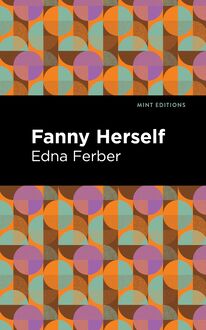-
 Univers
Univers
-
 Ebooks
Ebooks
-
 Livres audio
Livres audio
-
 Presse
Presse
-
 Podcasts
Podcasts
-
 BD
BD
-
 Documents
Documents
-
- Cours
- Révisions
- Ressources pédagogiques
- Sciences de l’éducation
- Manuels scolaires
- Langues
- Travaux de classe
- Annales de BEP
- Etudes supérieures
- Maternelle et primaire
- Fiches de lecture
- Orientation scolaire
- Méthodologie
- Corrigés de devoir
- Annales d’examens et concours
- Annales du bac
- Annales du brevet
- Rapports de stage
La lecture à portée de main
Vous pourrez modifier la taille du texte de cet ouvrage
Découvre YouScribe en t'inscrivant gratuitement
Je m'inscrisDécouvre YouScribe en t'inscrivant gratuitement
Je m'inscrisEn savoir plus
Vous pourrez modifier la taille du texte de cet ouvrage
En savoir plus

Description
Inspired by the life events of Antje Paarlberg, So Big is an award-winning drama that depicts the life of Selina Peake de Jong. Raised in a strict farming community, Selina decides to be a schoolteacher. Good-hearted and kind, she attempts to inspire her students to work for their dreams, no matter how nontraditional they seem. By encouraging artistic expression, Selina changes the lives of her students. When she marries a farmer named Pervus, the two welcome a baby boy into their family, naming their child Dirk. However, after the family suffers a tragic loss, Selina is forced to quit her job and work on a farm in order to provide her son with a stable life. As Dirk grows, Selina nurtures his artistic talent, proud when he begins to express interest in architecture. However, when Dirk comes of age, he begins to value money more and more, eventually giving up on the architect profession in favor of a stable and lucrative job as a stock broker. Heartbroken, Selina still tries to support her son, while quietly hoping that he returns to value his artistic roots.
First published in 1924, Edna Ferber felt unsure about her novel So Big, which would eventually go on to win a Pulitzer Prize, and inspire adaptations for film, radio and television. Set in a rural community within a Chicago suburb, So Big features a slice-of-life narrative, with strong themes of community, expression, and family. With intricate description of the daily life of the lower-class Dutch community, contemporary readers are afforded a privileged perspective into the social dynamics of early 20th century America.
This edition of So Big by Edna Ferber now features a new, eye-catching cover design and is printed in a font that is both modern and readable. With these accommodations, this edition of So Big crafts an accessible and pleasant reading experience for modern audiences while restoring the original mastery and emotion of Edna Ferber’s literature.
Sujets
Informations
| Publié par | Mint Editions |
| Date de parution | 02 mars 2021 |
| Nombre de lectures | 0 |
| EAN13 | 9781513285771 |
| Langue | English |
| Poids de l'ouvrage | 3 Mo |
Informations légales : prix de location à la page 0,0500€. Cette information est donnée uniquement à titre indicatif conformément à la législation en vigueur.
Extrait
So Big
Edna Ferber
So Big was first published in 1924.
This edition published by Mint Editions 2021.
ISBN 9781513280752 | E-ISBN 9781513285771
Published by Mint Editions®
minteditionbooks.com
Publishing Director: Jennifer Newens
Design & Production: Rachel Lopez Metzger
Project Manager: Micaela Clark
Typesetting: Westchester Publishing Services
C ONTENTS I NTRODUCTION I II III IV V VI VII VIII IX X XI XII XIII XIV XV XVI XVII XVIII XIX XX XXI
I NTRODUCTION
Edna Ferber is an arresting personality. In speech, in appearance, and in manner she stands out clear against the mass.
Anyone who really knows her realizes why her stories, both long and short, reach the understanding and touch the hearts of the readers. One is very likely to say, “Why, I know somebody like that,” or “I knew she would do that.”
She knows folks, all sorts of people, but she is interested chiefly in people who do things: not the men who run great corporations and control the destinies of thousands of men and women, but the men and women who have jobs, and under that classification come that vast number who run modest households, who struggle to bring up children, who, in fact, form the permanent solid stratum on which our society is built.
She has the large-minded sympathy that makes for understanding of the under dog. She will take French lessons, not only because she wants to study the language, but because a cultivated Frenchman needs money and will not accept charity.
Edna Ferber enjoys a talk with a washwoman and the woman enjoys the talk too. Her colored maid adores her—and imposes on her (as is the way with colored maids).
She hates pretension and is very likely to speak her mind not only to her intimates but straight to the face of the objectionable person. Sometimes she speaks more strongly than she should, for she is impulsive and quick-tempered, but no one is more generous than she in the acknowledgment of mistakes.
Her letters are characteristic. They just begin. No salutation, no sparring for an opening—they begin at the beginning and when she is through she stops. She just adds her initials.
She stands on her own small feet. If you say to her, “The mantle of O. Henry has fallen on your shoulders” (it has been said with complimentary intent), you will get a flash from her black eyes that will scorch you and a rush of words that will make you wish you were elsewhere. She does not want anyone’s else mantle or footgear for that matter—she is herself, Edna Ferber.
Her earlier picturesque, sometimes flippant style, the surprise climaxes, and the short pithy sentences, come from her newspaper experience and not from any influence of O. Henry. The newspaper editor’s command is to “tell the story and make it snappy,” and it has affected Edna Ferber’s style, as it has affected the work of many other writers who grew out of newspaper offices.
Her style has changed as all thoughtful readers must have noticed. The literary form of the Emma McChesney stories is quite different from that of the stories in “Cheerful by Request” and “Gigolo.” Read a story in “Roast Beef Medium” and then read “Old Man Minick.”
There is a depth and richness, a dignity and soundness, that the earlier works lacked. Yet there is no loss of strength and vital freshness in her later books.
There is a vitality about Edna Ferber that is recognizable the moment she comes into a room. She enters almost with a rush, with a quick, firm step; though she is short, scarcely more than five feet three, I should think, she dominates most groups. Her rather large head with its thick black hair, cropped so one may see the admirable shape of the skull, is held erect. She greets one with a cordiality that is sometimes disarming and she speaks with a curious drawl that seems quite out of character with her forthright nature. What she says is worth listening to, for even the most commonplace occasions bring forth unbromidic speech from Edna Ferber.
As she talks in private conversation so she talks in public. She is a good speech-maker, a good lecturer. Her spoken words have the pungent vitality of her writing and the reading of her own stories makes the characters come alive startlingly.
It may seem strange to those of us who do not make our own living by creative writing that a woman who has made her mark as a reporter and who still occasionally reports a national convention, finds it so hard to write fiction. Edna Ferber has written for newspapers about all sorts of things under every sort of difficult handicap of time and place, and has produced good “copy.” Yet her short stories, novels and plays, are slowly and laboriously produced. And when the job is done, so closely has she held her nose to the grindstone, that she is unable to perceive the work as a whole, and realize how good it is.
She once rented an apartment on the lake front in Chicago, her desk facing the blue waters. She was in the midst of her novel, “The Girls.” She complained that she could not get on with it, it was hard labor, so hard that in spite of her best efforts she would look at the lake and the trees and the children playing in the street below. Her anxious publisher besought her to turn her typewriter table so she faced the blank wall. She did; and the book was speedily born.
In an article in The American Magazine , under the characteristic title of “The Joy of the Job,” she tells of her methods of work.
“At the risk of being hated I wanted to state that I’ve always felt sorry for any woman who could play whenever she wanted to. She never will know how sweet play can be. Chocolate is no treat for a girl in a candy factory. Play is no treat for an idler. My work is such that morning engagements and festive luncheoning are forbidden. On those rare occasions, two or three times a year, perhaps, when I deliberately, and for the good of my soul, break the rule and sneak off down-town for luncheon, the affair takes on the proportions of an orgy. No college girls’ midnight fudge spree could be more thrilling. To my unaccustomed eyes the girls in their new hats all look pretty. The matrons appear amazingly well dressed. The men, chatting over their after-luncheon cigarettes, are captains of finance, discussing problems of national import. I refuse to believe what my vis-à-vis says about their being cloak-and-suit salesmen whose conversation probably runs thus:
“ ‘I come into his place at ten this morning and he wouldn’t look at my stuff till twelve, and finally I goes up to him, and I says to him, I says, “Looka here, Marx.”’
“The very waiters interest me. The ’bus boys are deft, and I refuse to be bothered by their finger nails. The chicken salad is a poem, the coffee a dream, the French pastry a divine concoction.
“When you work three hundred and fifty mornings in the year, a game of golf on the three hundred and fifty-first is a lark. That’s one reason why I play so atrociously, I suppose. They who say that work hardens one, or wearies, or dulls, have chosen the wrong occupation, or have never really tasted the delights of it. It’s the finest freshener in the world. It’s an appetizer. It’s a combination cocktail and hors d’œuvre , to be taken before playing. It gives color to the most commonplace of holidays. It makes a run through the park a treat. There’s very little thrill in a brisk walk if you can brisk-walk from morning until night. But after having sat before a typewriter, or desk, or table, for hours together, to be able to stretch one’s legs for a swing of two or three miles—that’s living.
“The entire output of my particular job depends upon me. By that I mean that when I put the cover on my typewriter the works are closed. The office equipment consists of one flat table, rather messy; one typewriter, much abused, and one typewriter table; a chunk of yellow copy paper, and one of white. All the wheels, belts, wires, bolts, files, tools—the whole manufacturing scheme of things—has got to be contained in the space between my chin and my topmost hairpin. And my one horror, my nightmare of nightmares, is that some morning I’ll wake up and find that space vacant, and the works closed down, with a mental sign over the front door reading:
“ ‘For Rent. Fine, large empty head. Inquire within.’
“There was one year when there was a sign reading, ‘Closed for repairs.’ The horror of it is still with me.”
In another place she says: “No autobiographical sketch is complete without a statement of ambitions. I have two. I want to be allowed to sit in a rocking chair on the curb at the corner of State and Madison streets and watch the folks go by. And I would fain live on a houseboat in the Vale of Cashmere. I don’t know where the Vale of Cashmere is, nor whether it boasts a water course or not.”
What a lot she would get out of her view of life from a rocking chair at State and Madison streets!
She complained bitterly once that a certain writer, now opulent and lazy, who knew Chicago from the stockyards to the North Shore, did not use the stuff he had in his head. She felt not so much that he was missing an opportunity, but that he had buried the talent of experience that should have been passed on to others after he had gone.
Though Edna Ferber lives in New York—her apartment faces Central Park—she is not of New York. She knows Chicago, she thinks Chicago, just as Booth Tarkington thinks and knows Indianapolis and would not live wholly away from it. The author of “The Girls,” that masterpiece of Chicago, frequently visits the Windy City and sits, metaphorically, at the corner of State and Madison and soaks in the spirit of the city, that city so recently a pioneer town, so lately an effete city. No wonder she finds it fascinating and inexhaustible.
Edna Ferber’s apartment is the place where she meets her friends, breakfasts, lunches, dines, and sleeps. It is her rest house, her relaxation. The furnishing of it was an adventure. The choosing of draperies for the
-
 Univers
Univers
-
 Ebooks
Ebooks
-
 Livres audio
Livres audio
-
 Presse
Presse
-
 Podcasts
Podcasts
-
 BD
BD
-
 Documents
Documents
-
Jeunesse
-
Littérature
-
Ressources professionnelles
-
Santé et bien-être
-
Savoirs
-
Education
-
Loisirs et hobbies
-
Art, musique et cinéma
-
Actualité et débat de société
-
Jeunesse
-
Littérature
-
Ressources professionnelles
-
Santé et bien-être
-
Savoirs
-
Education
-
Loisirs et hobbies
-
Art, musique et cinéma
-
Actualité et débat de société
-
Actualités
-
Lifestyle
-
Presse jeunesse
-
Presse professionnelle
-
Pratique
-
Presse sportive
-
Presse internationale
-
Culture & Médias
-
Action et Aventures
-
Science-fiction et Fantasy
-
Société
-
Jeunesse
-
Littérature
-
Ressources professionnelles
-
Santé et bien-être
-
Savoirs
-
Education
-
Loisirs et hobbies
-
Art, musique et cinéma
-
Actualité et débat de société
- Cours
- Révisions
- Ressources pédagogiques
- Sciences de l’éducation
- Manuels scolaires
- Langues
- Travaux de classe
- Annales de BEP
- Etudes supérieures
- Maternelle et primaire
- Fiches de lecture
- Orientation scolaire
- Méthodologie
- Corrigés de devoir
- Annales d’examens et concours
- Annales du bac
- Annales du brevet
- Rapports de stage















